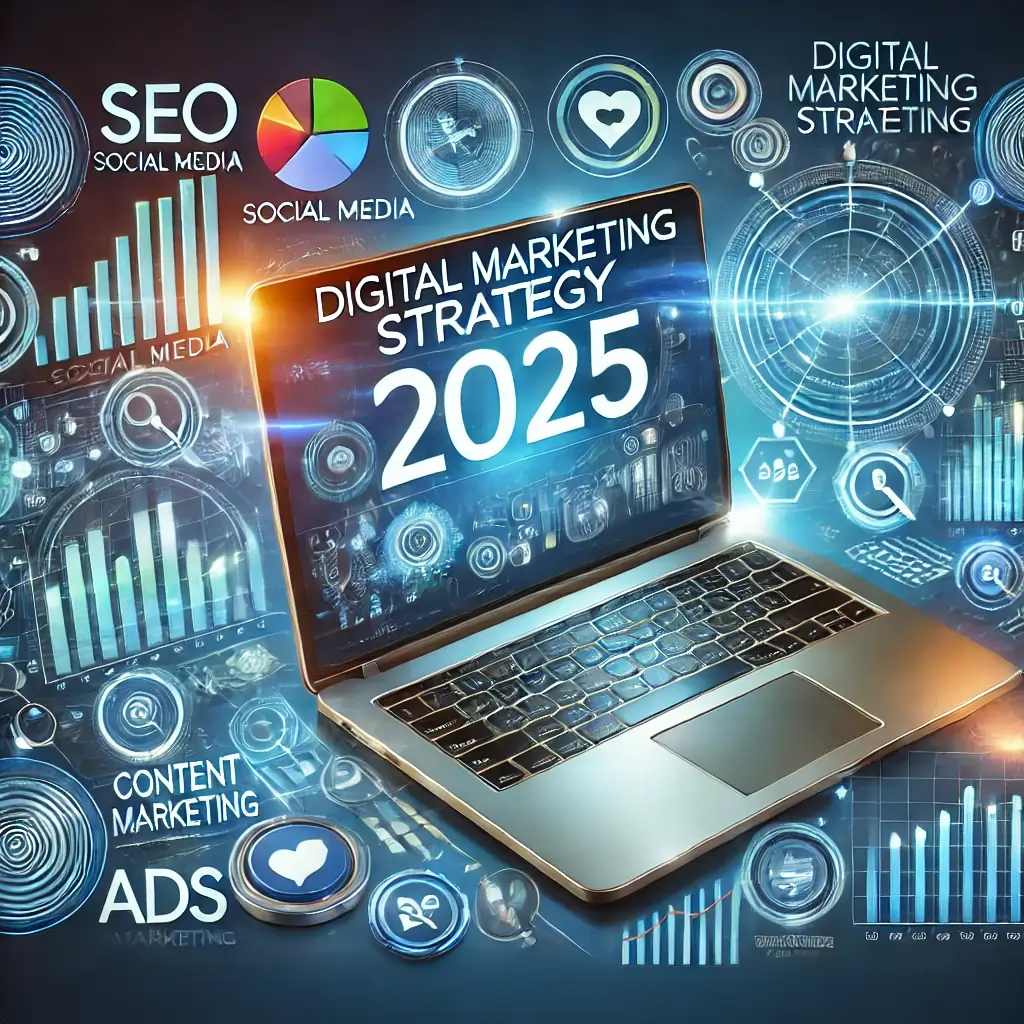In today’s rapidly evolving digital world, having a well-thought-out marketing strategy is no longer optional; it’s essential. Digital Marketing Strategy in 2025: With new technologies, changing consumer behaviors, and ever-increasing competition, 2025 demands that businesses be more innovative and data-driven. This comprehensive guide will walk you through the key steps to crafting an effective digital marketing strategy that drives results.
Define Your Digital Marketing Strategy Goals with a Clear Vision
Every successful marketing strategy begins with clearly defined goals. Without knowing what you want to achieve, your efforts will lack focus.
- Set SMART Goals: Ensure your objectives are Specific, Measurable, Achievable, Relevant, and Time-Bound.
- Examples of Goals:
- Increase website traffic by 30% in six months.
- Generate 500 new leads monthly through SEO and PPC.
- Improve customer engagement by 40% via social media channels.
Defining clear goals gives direction to your strategy and makes it easier to measure success.
Understand Your Audience: The Foundation of Marketing
A deep understanding of your target audience is the cornerstone of any effective digital marketing plan.
- Create Buyer Personas: Use tools like Google Analytics, customer surveys, and social media insights to create detailed profiles of your ideal customers.
- Segment Your Audience: Divide your audience into categories based on demographics, preferences, and behaviors to deliver personalized campaigns.
Pro Tip: The more specific you are about your audience, the more relevant and engaging your marketing efforts will be.
Perform a Comprehensive Competitor Analysis
Knowing what your competitors are doing helps you identify opportunities and gaps in the market.
- Use tools like SEMrush or Ahrefs to analyze their keywords, backlinks, and content strategy.
- Study their social media engagement to understand what resonates with their audience.
- Identify what differentiates your brand and leverage it in your marketing.
Optimize Your Website for SEO Success
Your website is the foundation of your online presence, and optimizing it for search engines is vital.
- Improve Site Speed: Slow-loading websites can increase bounce rates. Use tools like WP Rocket for optimization.
- Mobile Responsiveness: Ensure your site looks and works great on all devices.
- SEO Best Practices:
- Conduct keyword research using tools like Google Keyword Planner.
- Optimize meta titles, descriptions, and headings.
- Create high-quality, keyword-focused content.
Choose the Right Marketing Channels
Every business is unique; the best channels depend on your goals and audience. Some popular options include:
- Search Engine Optimization (SEO): Drive organic traffic to your website.
- Pay-Per-Click Advertising (PPC): Quickly generate leads and sales.
- Social Media Marketing: Build brand awareness and engage with your audience.
- Email Marketing: Nurture leads and maintain customer relationships.
Focus your resources on channels that offer the highest ROI for your business.
Leverage Content Marketing for Engagement
Content is king in digital marketing. High-quality, relevant content can attract, inform, and convert your audience.
- Types of Content to Create:
- Blog posts and articles.
- Videos and infographics.
- Case studies and whitepapers.
- Content Distribution: Share your content on social media, email newsletters, and relevant platforms to reach a wider audience.
Use Data Analytics to Track and Improve Performance
Measuring your campaigns’ success ensures you’re on the right track.
- Tools to Use: Google Analytics, SEMrush, and HubSpot.
- Metrics to Monitor:
- Website traffic and bounce rates.
- Conversion rates and ROI.
- Engagement metrics like likes, shares, and comments.
- Analyze data regularly and adjust your strategy based on insights.
Stay Ahead with 2025 Trends
Incorporating the latest trends will keep your strategy relevant and effective.
- Artificial Intelligence: Use AI tools for personalized recommendations and chatbots.
- Voice Search Optimization: Optimize your website for voice queries.
- Interactive Content: Engage users with polls, quizzes, and augmented reality.
Budget and Resource Allocation
A good marketing strategy is cost-effective and well-planned.
- Allocate your budget to high-performing channels.
- Invest in tools and platforms that improve productivity, like Canva for design or Trello for project management.
Call-to-Action: Let’s Create Your Digital Success Together
Creating an effective digital marketing strategy requires expertise, creativity, and consistency. If you’re ready to grow your business and achieve your goals, I can help.

